Interest Free Financing Up To 36 Months
WE DO NOT ONLY PUMP YOUR TANK - WE CLEAN IT!
Multiple Financing Options Are Available Up To 36 Months
Interest Free Financing Up To 36 Months
WE DO NOT ONLY PUMP YOUR TANK - WE CLEAN IT!
Multiple Financing Options Are Available Up To 36 Months
When managing wastewater in properties not connected to a municipal sewer system, cesspools, septic tanks, and tight tanks are common options. While these systems serve similar purposes, they function differently and require unique maintenance and care. Understanding the distinctions can help you choose the right solution for your property and ensure proper maintenance to avoid costly issues.
In this blog post, our professionals from Septic Blue of Raleigh will explain the differences between these tanks and how septic services help.
A cesspool is an older method of wastewater disposal. It consists of a pit or chamber lined with porous material, such as brick or stone, allowing liquid waste to seep into the surrounding soil while retaining solid waste. Cesspools are becoming less prevalent today as a result of environmental concerns, as they frequently result in groundwater contamination.
Maintenance of a cesspool requires frequent pumping because solids accumulate quickly and can cause blockages or overflows. A septic firm that has a wealth of experience in the maintenance of cesspools can offer the necessary septic tank pumping and cleaning services to ensure the system's functionality. However, many homeowners are opting to replace cesspools with modern septic systems due to their inefficiency and regulatory restrictions in certain areas.
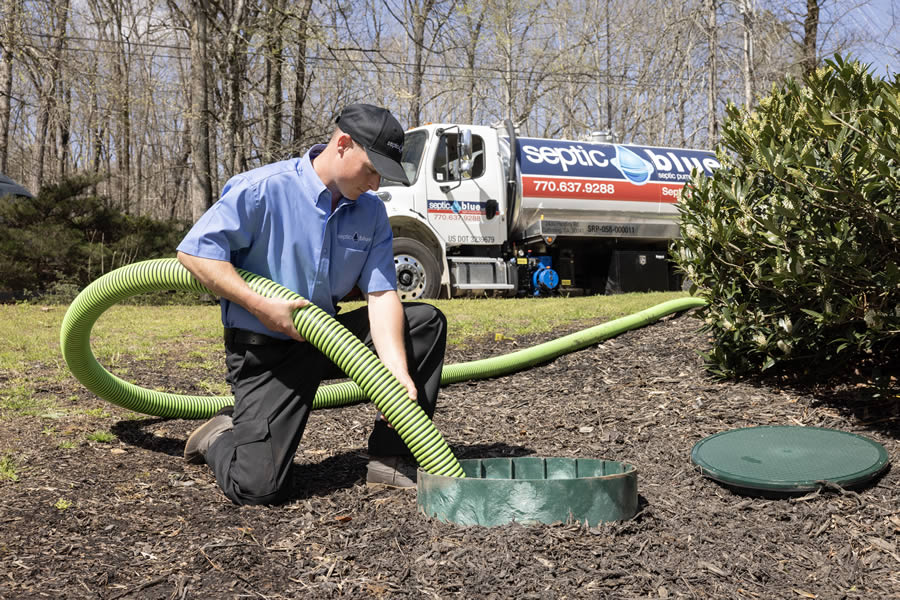
Septic tank pumping in Raleigh has never been so affordable and accessible thanks to the professionals at Septic Blue. We are…
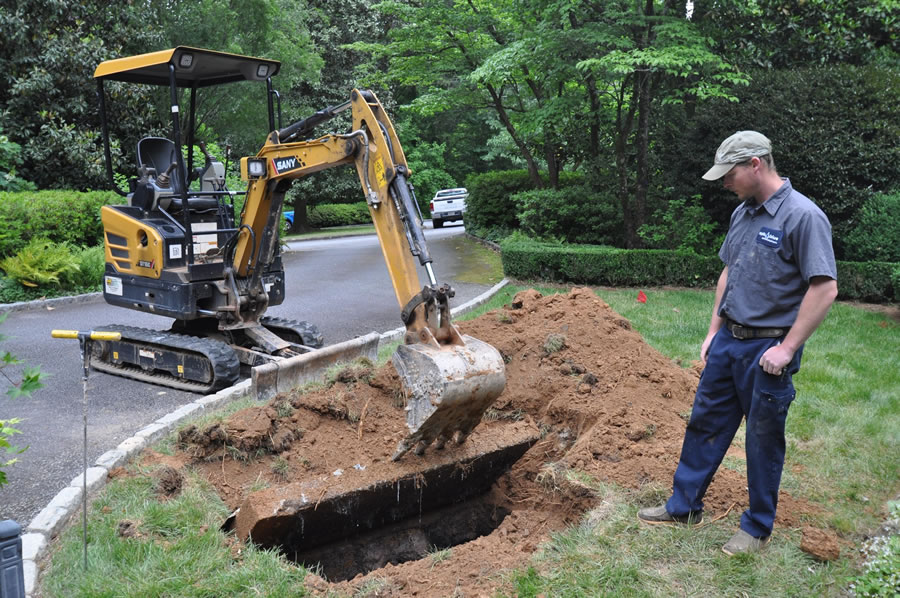
One quarter of Americans rely on septic tanks to process household waste. Most Septic Blue locations have septic tank experts who…
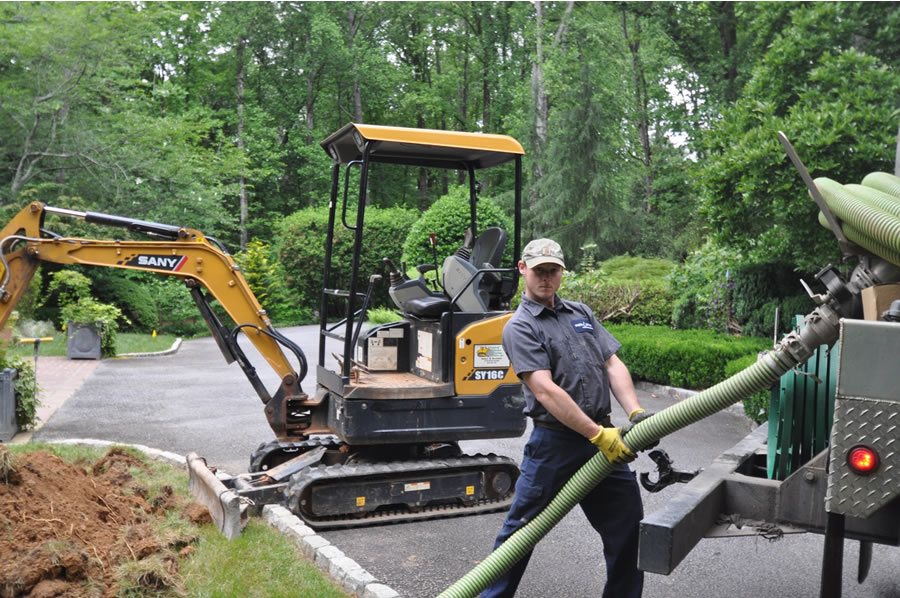
Call Septic Blue today for a second opinion. If you choose to go with Septic Blue, you'll receive $250 off your…
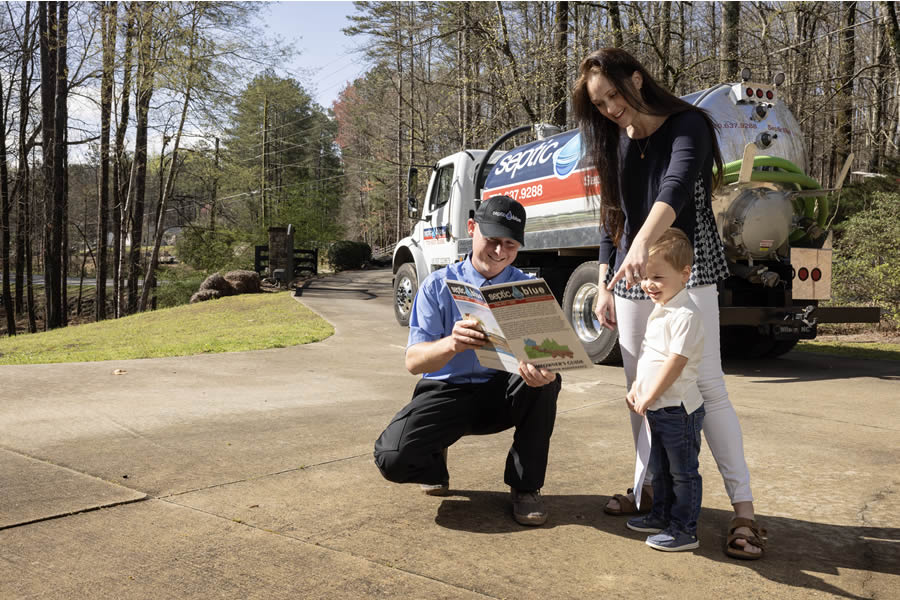
If you are a homeowner or resident in Raleigh that is among the 20 percent of households in the U.S. with…
Professional Saptic Plumbing solutions for every need. Contact Us Today!
A septic tank is a modern, self-contained system that separates solids, liquids, and oils from wastewater. These containers are typically constructed from polyethylene, fiberglass, or concrete and are intended to temporarily store waste, while simultaneously facilitating the natural filtration of liquids into a drain field.
Regular maintenance is essential for septic tanks to operate efficiently. Over time, solid waste builds up, and septic pumping becomes necessary to prevent backups and system failures. Furthermore, the removal of accumulated sludge and grease during septic tank cleaning can guarantee optimal performance.
If you’re installing a septic tank, work with a reliable septic business to ensure proper placement and compliance with local regulations. Professional septic tank installation ensures the system is durable and positioned for efficient wastewater treatment.
A tight tank is a fully enclosed wastewater storage system without an outlet. Unlike septic tanks, tight tanks do not allow liquid waste to leach into the soil or flow into a drain field. This renders them an optimal solution for properties with elevated groundwater levels or those that are prohibited by environmental regulations from utilizing conventional septic systems.
The primary drawback of tight tanks is their dependency on frequent pumping. Since all waste is contained within the tank, it fills up more quickly, requiring regular visits from a septic company for pumping services. Although tight tanks may be expensive to operate, they provide an environmentally favorable alternative in situations where other alternatives are not feasible.
The choice between a cesspool, septic tank, or tight tank depends on various factors, including your property’s soil conditions, groundwater levels, and local regulations. Septic tanks are frequently the most practicable option, as they provide an ideal balance of environmental friendliness and efficiency. However, if regulations in your area require it, a tight tank may be your only option.
Consulting a professional septic company is the best way to determine the most suitable system for your property. They can assess your needs and provide expert recommendations, ensuring compliance with all local requirements.
Are you in need of a septic tank repair? Luckily, we at Septic Blue of Raleigh have dedicated workers ready at your service. Contact our representatives for more questions.
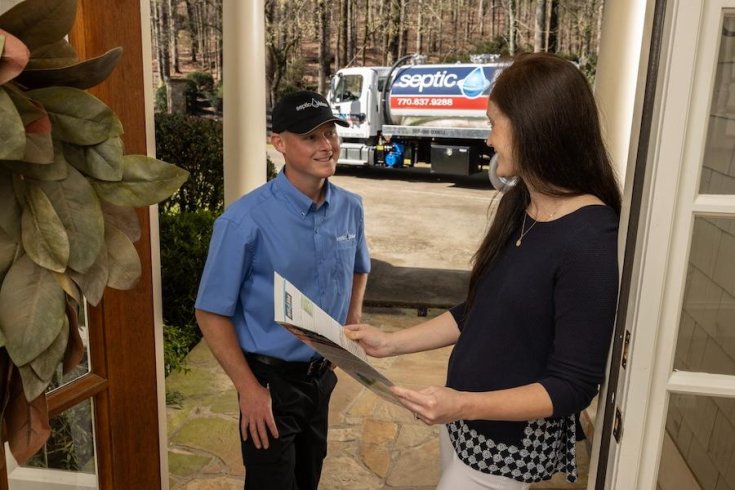
Hiring a septic company in Raleigh, NC involves more than comparing prices or scheduling the earliest appointment. Septic pumping, cleaning,…
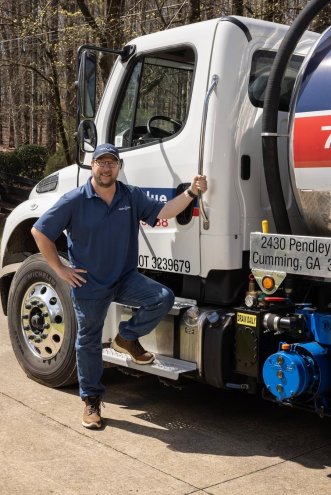
A septic system is designed to move wastewater efficiently from your home into a tank and then into the drain field.…
.webp)
Even if it often fades into the background of daily life, a septic system plays a critical role in keeping your…
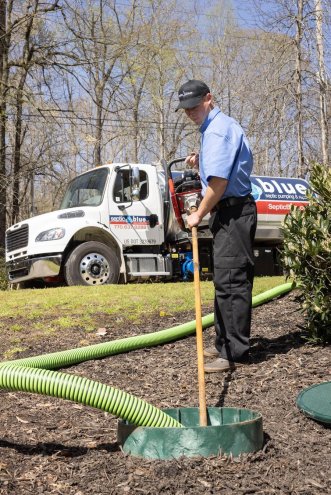
Septic systems play a critical role in protecting your home, health, and surrounding environment. Unfortunately, they're often misunderstood as systems that…